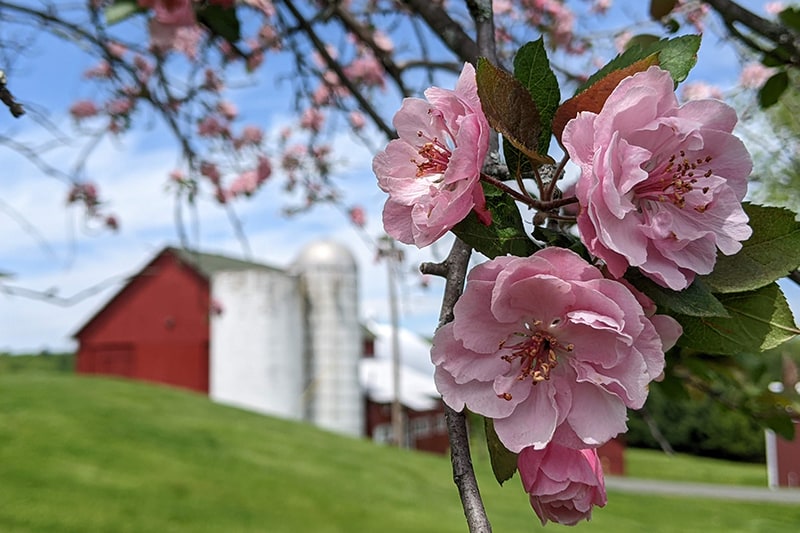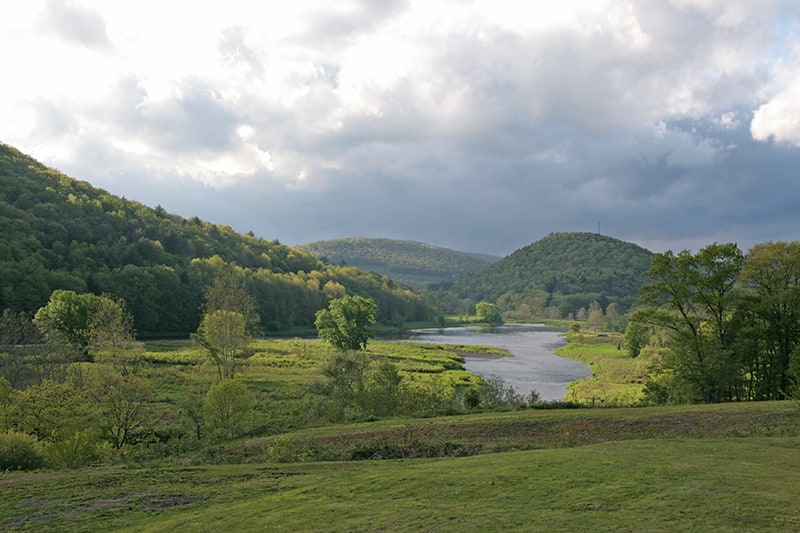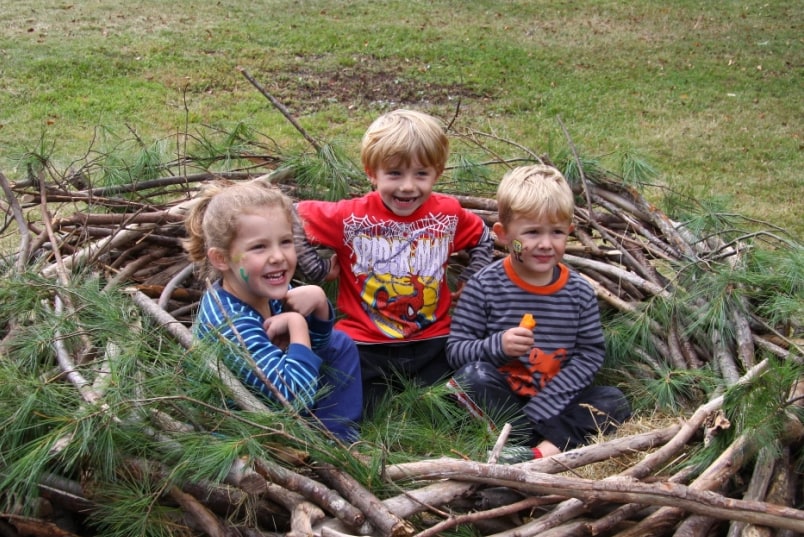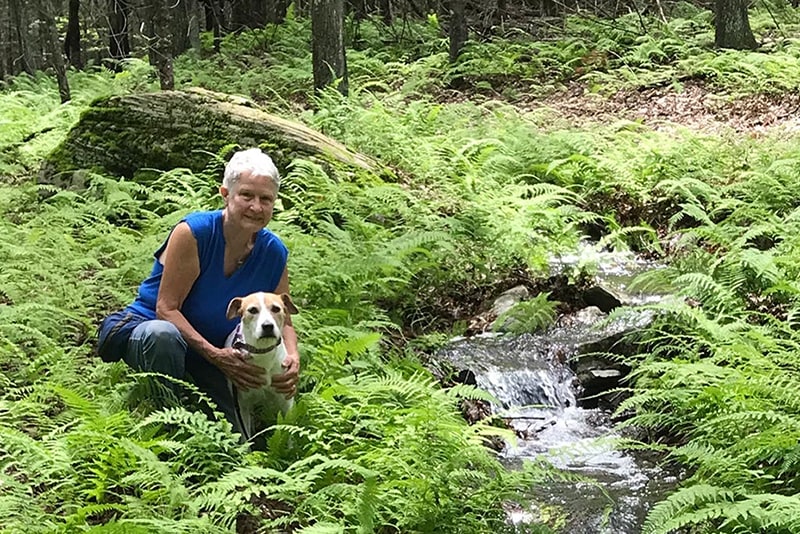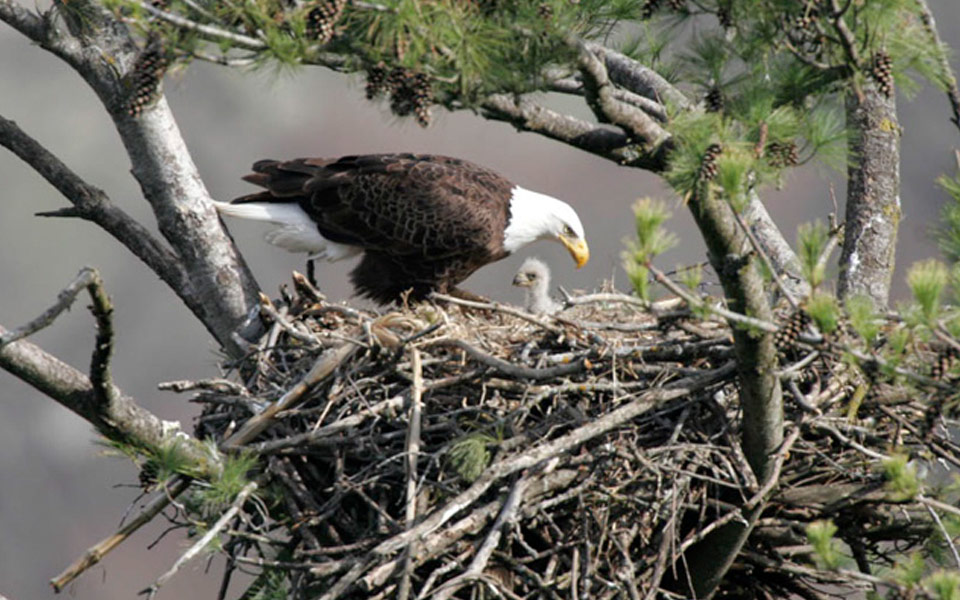Land Conservation Among Neighbors
In fact, they first learned about the Conservancy from their neighbors, who urged them to protect their land in the same way. By adding their 25-acres of farmland to the nearby Baldwin Hill farms, a tract of several hundred acres is now protected in perpetuity as a habitat for wildlife and for future farming endeavors; it even protects their historic stone walls. Together, Lizette and Paul have done much to improve their beautiful property since acquiring it in 1996.
They hired one of their neighbor’s sons, a strapping teenager named Jason, to help them clear brush and fallen trees and to restore some of the historic stone walls on their property which were crumbling and falling into disrepair. The result is a beautiful landscape of open fields, separated by neatly aligned stone walls, and dotted with flowering bushes of mountain laurel, honeysuckle, and blueberries. They have restored their land so that it can be used to graze horses or cows, to be farmed in any manner, but to never be subdivided or developed.
Their conservation easement also specifies that their stone walls have to stay—they can’t be sold or torn down. “Both of us love nature and love to be surrounded by beauty,” says Lizette. “We have black bears and deer and foxes, raccoons and occasionally a mink, and rabbits all over the place, plus birds—lots of birds,” she adds. Protecting their land with a conservation easement also assures that the habitat for those wild creatures will be protected.
Ms. Berry, a retired marketing research consultant, loves to play the grand piano in the studio her husband built for her. You will also find a display many of his paintings in the studio. When Lizette plays before the large double glass doors facing the picturesque pond behind their house, she says that nature’s creatures are attracted to approach and listen to her music, and she often feels she is playing to them and for them.
Vasquez, a professional artist, says that their land “has been incredibly inspirational to me lifting the spirits. We want to keep it that way. We feel that it is good for the community, as well as good for the family, and good for the animals and the trees and the plants and the sunlight. By doing this conservation thing, this is what we’re giving,” he explains. “We think it’s important to take care of the land and the water and the air, and being responsible.”
The community of Damascus is indeed fortunate that it has found in Lizette Berry and Paul Vasquez a couple committed to protecting precious farmland for future generations, following the lead of their conservationist neighbors and their own strong environmental consciousness.

